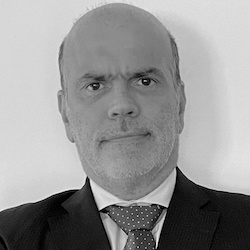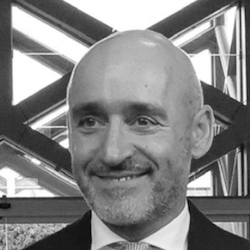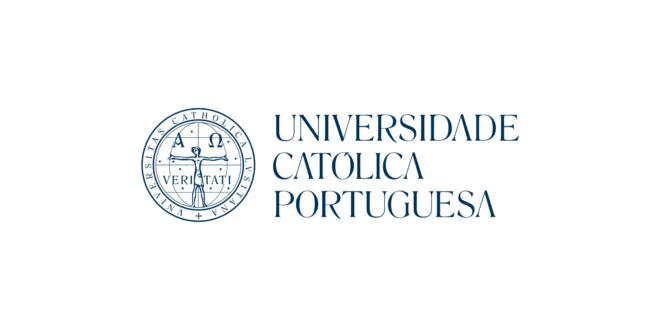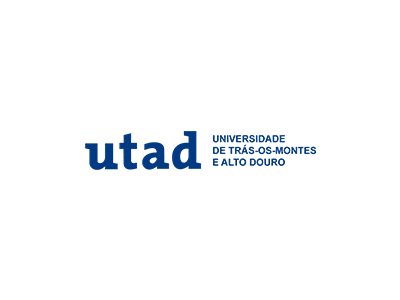
THE FOUNDATION
ANTONIO PARGANA

mission
What connections should we establish with the countries of the Diaspora and with Portuguese descendants? How to promote positive relations that allow the exchange of knowledge and the promotion of activities that express the importance of understanding Contemporary Portugal? How to involve institutions and companies?
All these questions are answered based on the basic idea that led to the creation of APF: valuing Portuguese Culture and the relationship with Portuguese descendants.

The Foundation
Established in October 2023, the António Pargana Foundation aims to contribute to strengthening ties between Portugal and the Diaspora, in particular with the student universe with hereditary or emotional ties to the country.
António Pargana Foundation
The main goal of APF´s activities is to strengthen the connection between Portugal and the Diaspora through greater mutual knowledge. Direct recipients of the AP Foundation's action, Portuguese descendants and Portuguese speakers, will have the possibility of creating different connections with the reality of the Contemporary Portugal, through programs made available by APF partner Universities.
These programs, organized with the support of public and private institutions, companies and other entities that want to be associated with this mission, should constitute an additional benefit for young people who attend them and who - through direct contact with the business community, cultural, political and other institutions - create or strengthen their connection with Portugal.
The incorporation of talents from Diaspora countries into Portuguese companies is also part of the set of activities to be developed.
APF programs will have two specific aspects: a theoretical one that includes classes, thematic seminars at universities and training courses and a practical and experiential one, providing visits and meetings to public and political institutions and Portuguese companies. It is important that visits and meetings can put younger generations in dialogue with the protagonists of public and private activities.
Investing in synergies with partners and institutions that can contribute to the growing appreciation of Portuguese culture is a task that is expected to be continuous and beneficial for all parties. To this end, APF promotes the creation of an open and continuous dialogue to better determine which areas of intervention can benefit its mission.
Education
APF's areas of intervention include the teaching of Culture, History, Economy and Portuguese Language.
Private in nature, FAP develops protocols and partnerships with public and private entities, institutions and educational establishments, supporting programs, training and research projects.
The dissemination of Portuguese Culture needs support, awareness and encouragement. Therefore, APF provides financial support, grants and scholarships for activities and projects that fall within the field of activity and the mission set out in the organization´s regulations.
FOCUS AREAS

Education and Academic Training
Collaboration with higher education institutions, support for educational programs, training, and research on Portuguese culture and its relationship with the diaspora.

Cultural Promotion and Dissemination of Portuguese Identity
Organization and participation in conferences and other events aimed at promoting Portuguese culture, history, and language.

Support and Funding for Projects
Support for universities and other institutions that develop projects aimed at promoting and raising awareness of Portugal among students and other audiences.

Institutional and International Collaboration
Partnerships with national and international entities, including Portuguese communities abroad and public and private institutions, to strengthen ties between the diaspora and Portugal.
THE TEAM BEHIND THE FOUNDATION
Foundation President

Foundation President
Antonio Pargana
What is the purpose of the Antonio Pargana Foundation?
We all have one or more stories. These stories shape who we are. Together, in the complexity of each story, we also tell the story of a country. Who we are, where we come from, and where we are going. The primary goal of the António Pargana Foundation is to reveal to the children, grandchildren, and great-grandchildren of Portuguese people the new Portugal, its history, cultural dimension, technological, and economic capacity. Through partnerships with universities and other institutions, we aim to strengthen the connection of the Diaspora and their descendants to contemporary Portugal, serving as a platform for meeting in the present and the future.
Where does your story begin?
I was born in Porto. It was there that my father finished his engineering degree; however, my parents are originally from the Algarve. If you ask me where I'm from, I will say I'm from the Algarve. I was four years old when we moved to Mozambique. It was in the village of Guijá-Limpopo that I started primary school.
A few years later, the family returned to Portugal and chose to live in Lisbon. There, I attended Liceu Camões and then Instituto Superior Técnico (IST). At the end of my first year of undergraduate studies, my father returned to Africa, this time to Angola, and the family joined him. I continued my studies at the University of Engineering in Luanda.
Were you in Angola on April 25th? Did the revolution change your life?
In 1972, I was drafted for mandatory military service. I was a militia officer in a company based in Benza, northern Angola, when April 25th, 1974 occurred, starting the decolonization process. I left the army immediately. Already married to a student from the Faculty of Medicine of Lisbon, I started working in Luanda. In November 1975, a few days before Angola's independence, we returned to Portugal. The newfound freedom was exhilarating, but job opportunities for those seeking their first job were almost non-existent. My life is linked to necessity. Necessity is the mother of invention, and the April revolution led me to Brazil, a country that enchanted me with its continental dimensions and the joy and friendliness of its people.
Did Brazil offer you a new perspective on life?
As soon as I arrived in São Paulo, I responded to job advertisements published in the Sunday edition of the newspaper O Estado de São Paulo. In less than a week, I started working in a factory in Guarulhos. It was not what I aspired to, but three months later, I started working at Cotia Trading, part of the Ovídio Miranda Brito Group, one of the largest producers and exporters of Brazilian beef. I traveled numerous times to Nigeria, Ghana, and the Ivory Coast, where we opened commercial offices and made several investments.
Brazil needed to increase its exports and balance its payments. As Commercial Director of Cotia, I closed the first sale of Brazilian fuel alcohol to the United States of America, signed contracts for the sale of meat and agricultural commodities to Iraq, and began exporting steel and various products to Malaysia, Japan, Korea, and China. Brazil showed me what can be done when you think big. In 1989, Brazil held its first democratic elections, ending the military dictatorship.
I was able to contribute to some changes that transformed Brazil for the better as I participated in the team that worked on the development of Fernando Collor de Mello's government program, particularly in the New Industrial and Foreign Trade Policy, which eliminated most non-tariff barriers inherited from the import substitution period. In 1990, Brazil's total exports were approximately 31.4 billion US dollars, and total imports were about 20.6 billion, with a trade surplus of 10.7 billion. In 2023, Brazil's total exports were 339.67 billion US dollars, and total imports were 240.83 billion, with a trade surplus close to 100 billion.
Did you take on executive roles in Brazil?
I collaborated in the transition from President Sarney's Government to President Collor's, coordinating activities in the sectors of foreign trade, steel, and transport. In the Ministry of Infrastructure, I led the transition for the appointed minister, Osíris da Silva. Shortly after the new president took office, I resumed my business activities in São Paulo.
How did Brazil's democracy influence your entrepreneurial journey?
In 1994, with Olacyr de Moraes, who was the world's largest soybean producer, I founded Dealer, which later became Cisa Trading. From 1997 onwards, Cisa, with a broad base of new investors (notably Fernando Aboudib Camargo, a major Brazilian entrepreneur and businessman), increased its sales volume and number of clients, becoming one of Brazil's largest international trade companies.
You cannot export without importing. In an increasingly globalized world, industrial productions incorporate raw materials and components from various origins. The secret is to combine and maximize quality products efficiently at the lowest possible price, regardless of where they are produced. Brazil, due to its geographical disadvantage — acquiring industrial components produced on continents more than 10 days away by sea and exporting Brazilian products to the same distant destinations — has to competently manage trade flows and logistics.
What were your areas of interest? What areas did you consider strategic in business and personal investment?
Cisa Trading operated in all major distribution chains, importing vehicles and automotive parts, cosmetics, pharmaceuticals, IT products, machinery and equipment, chemicals, electronics, non-ferrous metals, and steel. It operated in private terminals, warehouses, and customs stations, with branches throughout Brazil and abroad (USA and Argentina). It offered logistical, operational, tax, and financial solutions. It handled over 500,000 items and processed about 100,000 invoices. In 2021, Cisa Trading signed an agreement to associate and transfer its client portfolio to Comexport. Thus, the largest Brazilian trading company was born. Cisa's shareholders continued to participate in the businesses they created.
You have lived your life around the world without losing your ties to Portugal.
The roots of the Portuguese diaspora lie in the ideal of seeking overseas wealth for Portugal. The main vectors have always been transport and goods. My experience in foreign trade showed me the importance of scale and network. I am convinced that with intelligence and appropriate networking, millions of Portuguese descendants can multiply the market size for Portuguese companies, which with scale will pursue the same goals of prosperity, now with updated resources.
You experienced the Diaspora, the Portugal-Africa-Brazil triangulation. What do you believe in?
I believe in our capacity to innovate and create wealth. I believe in the fundamental importance of establishing partnerships. In all the investments I made, I have partners, some of whom are executives. I believe in and practice employee profit-sharing. In 2000, we inaugurated the Vila Velha Port Company (CPVV), a port terminal supporting oil exploration. In 2002, we founded the Petrolina Energy Company (CEP), a company generating thermal, hydro, solar, and wind energy. I am also one of the founders of Quanta Geração S.A., a company generating hydro and solar energy, and the Paulínia Metallurgical Company, which controls Steel Warehouse Cisa, a steel service center. In 2015, I began investing in Portugal. Along with other Brazilian investors, we acquired through CPW and Global Roads a 30% stake in Brisa Concessions Road. At the same time, I created TivarInvest in Portugal, a holding and investment company.
You remain very active, and the AP Foundation is proof of that. However, you hold other positions besides the presidency of the foundation you established. What are they?
I participate as a board member of the various companies in which I am a shareholder. I am always attentive to business opportunities that may arise.
I want to somehow give back the honor I received when I was awarded the Grand Cross of the Order of Infante by the Portuguese government in 2015.
The Foundation is an outgrowth of my activity as President of the Portuguese Chamber of Commerce in Brazil – São Paulo from 2005 to 2009 – and President of Eurochambers (July 2008 to June 2009), an organization in which the various European Chambers of Commerce participate. And being an advisor to Portugal in the World and a member of the Portuguese Diaspora Council.
I see it as my priority to bring this dream to Portuguese people who, like me, have immigrated and are part of our Diaspora. And to be able to ensure their collaboration for a better future for all.


%20(4)%20(3).jpg)






